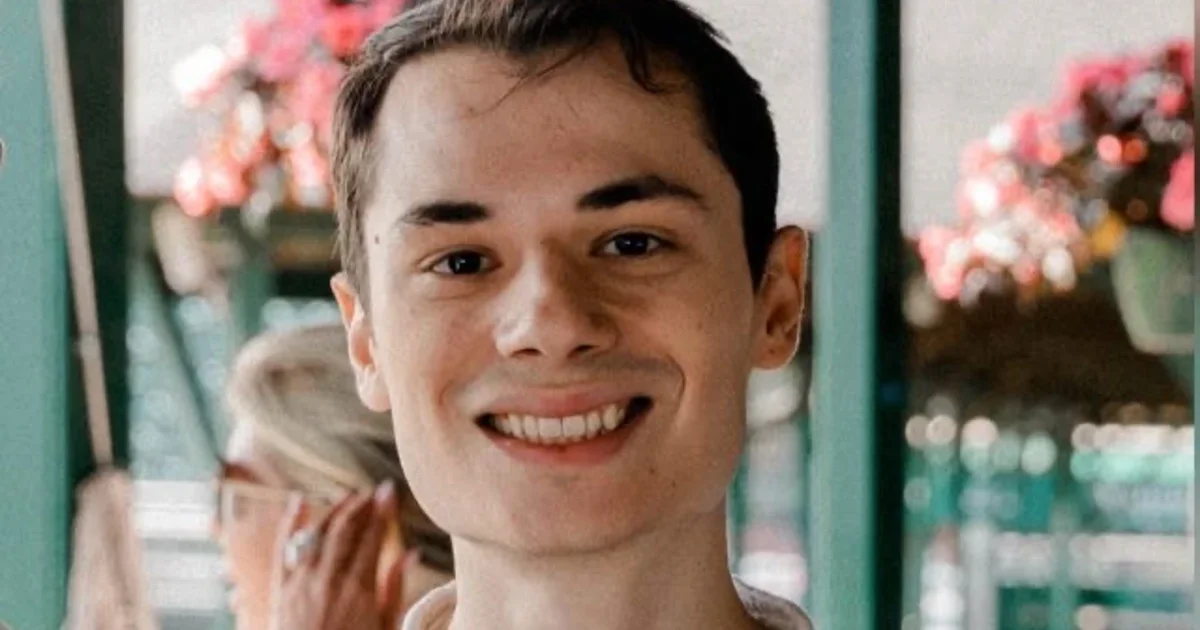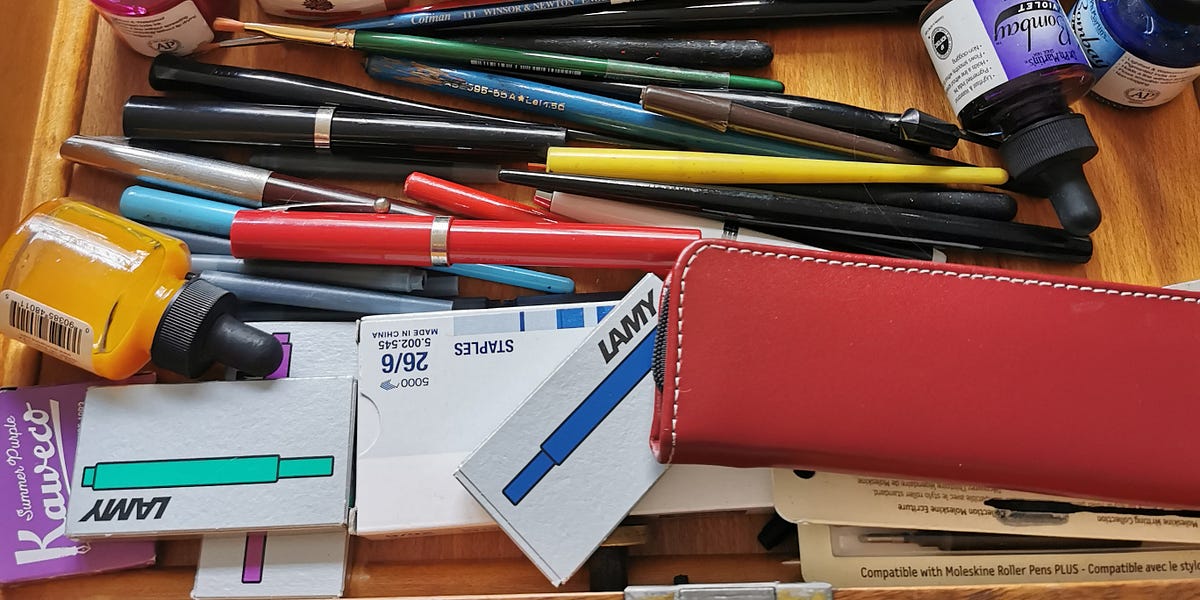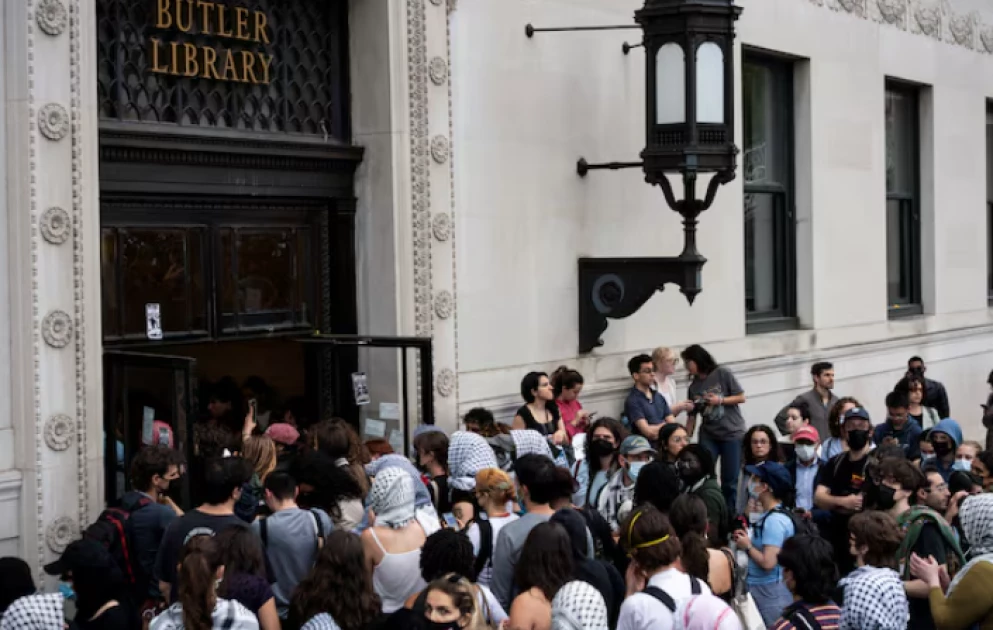Student branded 'terrorist sympathiser' by Trump administration fighting deportation from US | ITV News

Mohsen Mahdawi says he has fallen in love with the land in Vermont.
He describes the cabin he built here during lockdown as his ‘nest’. Since his release from detention two weeks ago, he has a new appreciation for his liberty in this bucolic corner of northeastern America.
He has lived here on and off for a decade, during a long stint as a student. Next month he will graduate from Columbia University, where pro-Palestinian protests paralysed parts of the campus last year.
Although he stood back from these noisy encampments, he was still a leading voice among students on the issue of Gaza. His background as a third-generation refugee from the West Bank informs his opinions.
The Trump administration views him not as a disciple of peace and understanding, but as a trouble-maker whom they are determined to kick out of the country.
He is one of a growing number of high-profile students who have been arrested, often by plain-clothed officers, and detained at immigration centres hundreds of miles from where they are studying.
Another, Mahmoud Khalil, is being held in Louisiana at the other end of the country and is due in court next week as he continues to fight his deportation.
In his first interview with British TV, Mahdawi told me about how he coped with being put behind bars for two weeks.
He is determined not to be silenced, even as his legal battle to stay in the United States continues to play out. He is also very adamant that the protests were in no way anti-semitic or pro-Hamas.
When I asked about some Jewish students on campus who claimed they felt unsafe or were threatened during the sit-ins, he invited them to take part in the movement, saying it is focused on human rights and equality.
He also dismissed suggestions he had made anti-semitic remarks in the past, claiming his comments had been twisted ‘180 degrees’ from campaigning against anti-semitism.
Despite everything he has been through, he remains tranquil.
He says he is now a Buddhist and meditated before our interview to ‘centre himself’.
Speaking calmly and often with a smile, he set out his beliefs and tried to tackle some of the accusations levelled at him about his past views and social media posts.
He remains determined to continue delivering a message of equality and human rights on the Middle East. He recently won a legal victory securing his release from detention, but his battle to stay in the US is far from over.
Along with other prominent student activists, he is embroiled in a tussle with the US government over his rights to stay in America.
Mahdawi has a green card giving him the right to live and work here, but earlier this year US Secretary of State Marco Rubio has suggested that green cards are not a right and can be revoked.
The issue will be fought out in the courts over the next few months, with Mahdawi’s supporters claiming freedom of speech is on the line, as Donald Trump tries to crack down on those who they see as hostile actors.
Mahdawi has been a green card holder for the past 10 years and is due to finish his undergraduate degree in philosophy at Columbia University in New York this month.
The 34-year-old, who was born and raised in a refugee camp in the West Bank, became a prominent organiser of pro-Palestinian demonstrations on campus, speaking out about Israel’s military campaign in Gaza.
He co-founded 'Dar: the Palestinian Student Society' at Columbia alongside Mahmoud Khalil, after the October 7th, 2023, Hamas attack on Israel. Khalil is also facing deportation proceedings and is currently in detention at a Louisiana prison.
According to submissions made by Mahdawi’s lawyers, he took a step back from protest organising in March 2024, before the student encampments at Columbia University began.
Mahdawi’s lawyers argue that his arrest and detention by the Trump administration is an attempt to retaliate and punish him for his activism on the war in Gaza.
They submitted a petition challenging the lawfulness of his arrest, called a habeas petition, as soon as he was detained, as well as a later motion for his release on bail.
On April 30, US District Court Judge Geoffrey W. Crawford in Vermont released Mahdawi on bail while the lawfulness of his deportation is decided in the courts.
He agreed with Mahdawi’s lawyers that keeping him in detention would “likely have a chilling effect on protected speech, which is squarely against the public interest”.
Among the filings made by the US government against Mahdawi is a two-page letter from Secretary of State Marco Rubio arguing that the “activities and presence of Mahdawi in the United States undermines US policy to combat anti-semitism” and that the protests which Mahdawi led on campus had the potential to “undermine the peace process underway in the Middle East.”
Additional exhibits the government submitted under seal is a 2015 report from the Windsor Police Department in Vermont. The filing details an incident where a gun shop owner told police officers that Mahdawi had visited the shop, showed an interest in guns and told him that he used to build guns “to kill Jews while he was in Palestine”.
Mahdawi admitted to the court having visited the gun store but vehemently denied making those statements. Judge Crawford noted that the FBI investigated claims, but that they did not take any further action on them.
The Trump administration has remained steadfast in its criticism of Mahdawi, describing him since his release as a “terrorist sympathiser and national security threat who does not belong in this country.”











